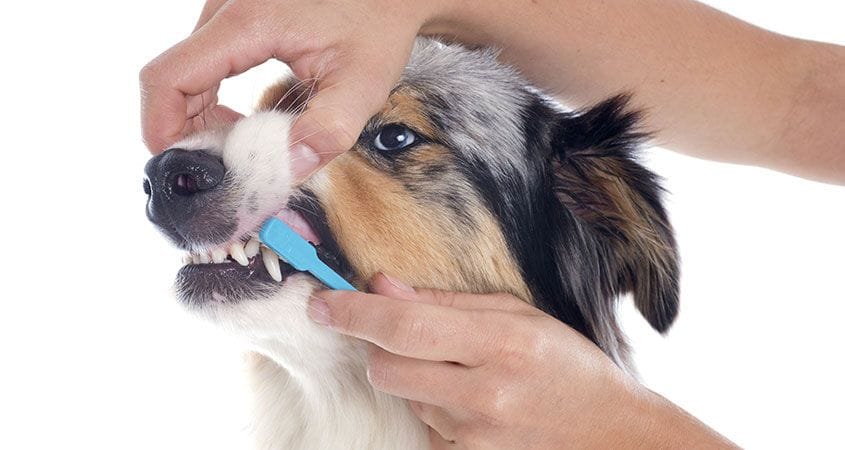Taking care of your puppy’s teeth is essential to maintain good health, although sometimes it is forgotten that dogs also need this type of attention. At Animal Expert we know that establishing a oral hygiene routine for your four-legged partner is essential, not only to avoid discomfort such as bad breath and chipped teeth, but also to protect him from serious illness. That’s why we give you these tips to take care of your dog’s dentures, because a healthy dog is a happy dog.
As in humans, your dog’s dentures will deteriorate over time if it does not receive the necessary care, which favors the appearance of bad breath, dental plaque and tartar, in addition you run the risk of peeling the teeth of the dog. or develop certain infections, such as gingivitis and periodontitis. These diseases cause discomfort and aggression in your four-legged friend and put your life at risk.
- Surely you will wonder why we should take care of your teeth if.
- In theory.
- They are animals capable of living in nature.
- However.
- You should keep in mind that this was the case in the past.
- When a diet based on raw meat.
- Bone and cartilage kept the dog’s teeth healthy and strong.
- While with the domestication and food it offers at home.
- Other problems appeared.
Normally, the medium, large and giant dog begins to develop tartar and dental plaque from the age of 3, while the toy dog or small usually begins to develop it earlier. In any case, implementing an early hygiene routine is essential to avoid such inconveniences.
There are several options to take care of your dog’s dentures and it is necessary to use several to obtain good hygiene in order to take care of your dog’s dentures:
No dog, at first, would want you to stick your fingers in his mouth, hence the importance of getting the dog used to the routine of brushing his teeth from a puppy. Your puppy’s teeth won’t appear completely until the age of 6 or 8 months, but brushing can be used before.
From an early age and for about 5 minutes each day, try to get your puppy used to moving your mouth by gently inserting your fingers and gently rubbing your teeth, it will be uncomfortable for him, but soon he will feel it normally.
When the prosthesis is finished, you can start with a soft bristle brush. If your dog is already an adult, it will take a little longer to get used to, but don’t give up and be patient.
In addition to the above tips for taking care of your puppy’s teeth, we advise you to consider the following recommendations:
If you would like to read articles similar to, we recommend that you visit our Dental Hygiene section.

